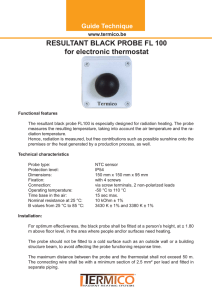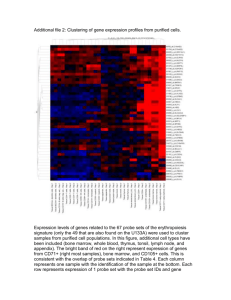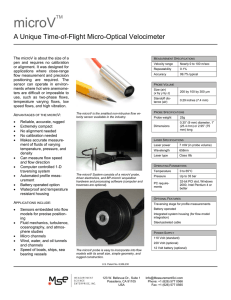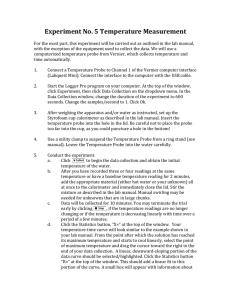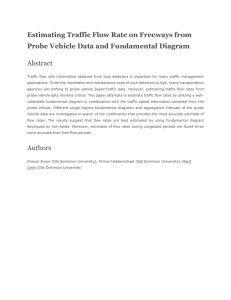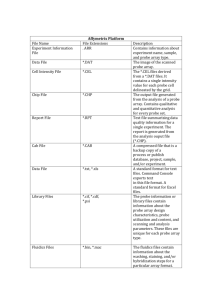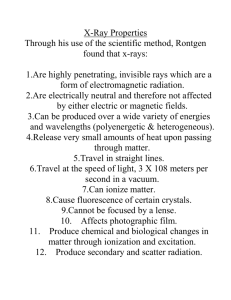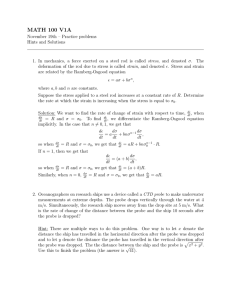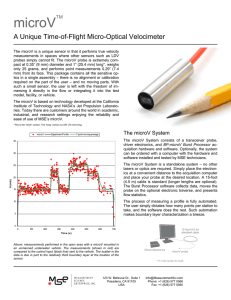Thermocouple Radiation Correction: Temperature Loss Analysis
advertisement
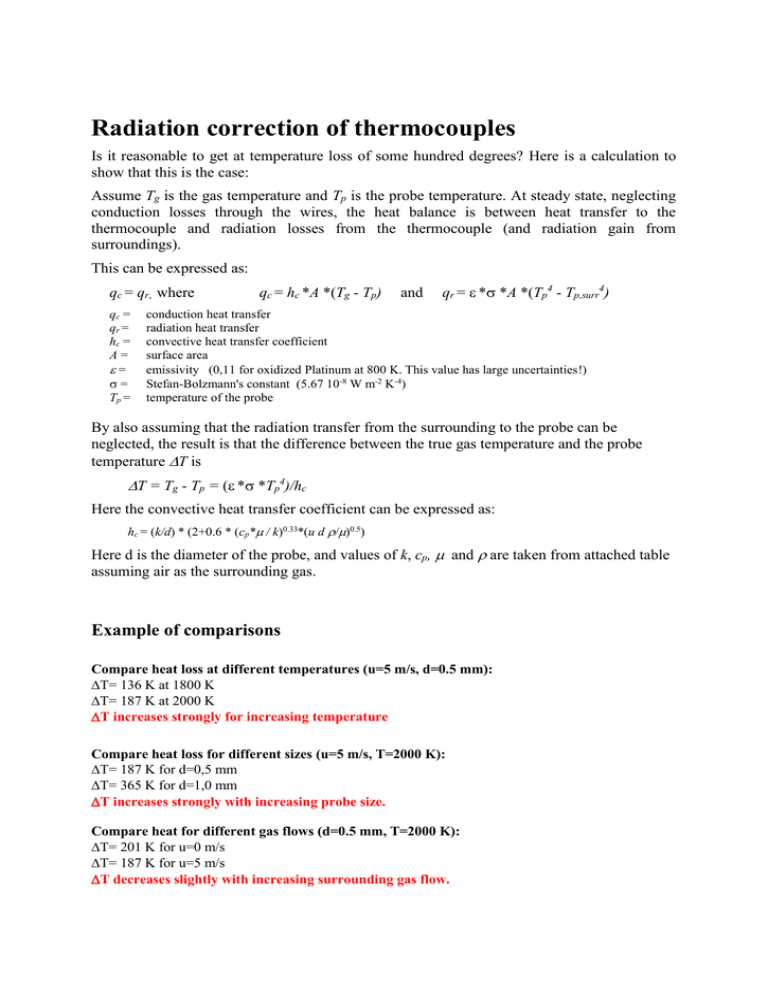
Radiation correction of thermocouples Is it reasonable to get at temperature loss of some hundred degrees? Here is a calculation to show that this is the case: Assume Tg is the gas temperature and Tp is the probe temperature. At steady state, neglecting conduction losses through the wires, the heat balance is between heat transfer to the thermocouple and radiation losses from the thermocouple (and radiation gain from surroundings). This can be expressed as: qc = qr, where qc = qr = hc = A= = = Tp = qc = hc *A *(Tg - Tp) and qr = * *A *(Tp4 - Tp,surr4) conduction heat transfer radiation heat transfer convective heat transfer coefficient surface area emissivity (0,11 for oxidized Platinum at 800 K. This value has large uncertainties!) Stefan-Bolzmann's constant (5.67 10-8 W m-2 K-4) temperature of the probe By also assuming that the radiation transfer from the surrounding to the probe can be neglected, the result is that the difference between the true gas temperature and the probe temperature T is T = Tg - Tp = ( * *Tp4)/hc Here the convective heat transfer coefficient can be expressed as: hc = (k/d) * (2+0.6 * (cp*/ k)0.33*(u d /)0.5) Here d is the diameter of the probe, and values of k, cp, and are taken from attached table assuming air as the surrounding gas. Example of comparisons Compare heat loss at different temperatures (u=5 m/s, d=0.5 mm): T= 136 K at 1800 K T= 187 K at 2000 K T increases strongly for increasing temperature Compare heat loss for different sizes (u=5 m/s, T=2000 K): T= 187 K for d=0,5 mm T= 365 K for d=1,0 mm T increases strongly with increasing probe size. Compare heat for different gas flows (d=0.5 mm, T=2000 K): T= 201 K for u=0 m/s T= 187 K for u=5 m/s T decreases slightly with increasing surrounding gas flow. Table. Properties of air at atmospheric pressure. The values of , k, and cp are not strongly temperature dependent and may be used over a fairly wide range of pressures. (kg/m s) (m2/s) (m2/s) T(K) cp (kJ/kg K) k (W/m K) (kg/m3) 5 4 -4 100 200 300 400 500 600 700 800 900 1000 1100 1200 1300 1400 1500 1600 1700 1800 1900 2000 2100 2200 2300 2400 2500 3.6010 1.7684 1.1774 0.8826 0.7048 0.5879 0.5030 0.4405 0.3925 0.3524 0.3204 0.2947 0.2707 0.2515 0.2355 0.2211 0.2082 0.1970 0.1858 0.1762 0.1682 0.1602 0.1538 0.1458 0.1394 = density cp = specific heat capacity = viscosity k = thermal conductivity = thermal diffusivity 1.0266 1.0061 1.0057 1.0140 1.0295 1.0551 1.0752 1.0978 1.1212 1.1417 1.160 1.179 1.197 1.214 1.230 1.248 1.267 1.287 1.309 1.338 1.372 1.419 1.482 1.574 1.688 *10 0.6924 1.3289 1.8462 2.286 2.671 3.018 3.332 3.625 3.899 4.152 4.44 4.69 4.93 5.17 5.40 5.63 5.85 6.07 6.29 6.50 6.72 6.93 7.14 7.35 7.57 *10 1.923 7.490 15.69 25.90 37.90 51.34 66.25 82.29 99.3 117.8 138.6 159.1 182.1 205.5 229.1 254.5 280.5 308.1 338.5 369.0 399.6 432.6 464.0 504.0 543.5 0.009246 0.01809 0.02624 0.03365 0.04038 0.04659 0.05230 0.05779 0.06279 0.06752 0.0732 0.0782 0.0837 0.0891 0.0946 0.100 0.105 0.111 0.117 0.124 0.131 0.139 0.149 0.161 0.175 *10 0.02501 0.10165 0.22160 0.3760 0.5564 0.7512 0.9672 1.1951 1.4271 1.6779 1.969 2.251 2.583 2.920 3.262 3.609 3.977 4.379 4.811 5.260 5.715 6.120 6.540 7.020 7.441
